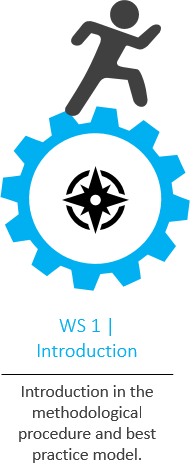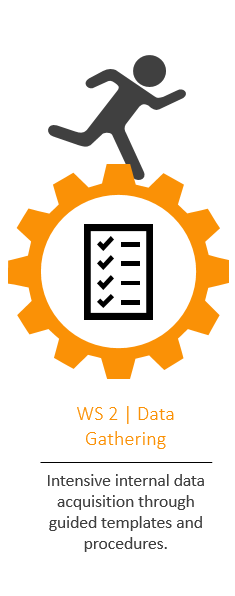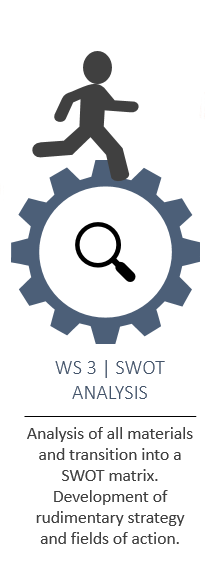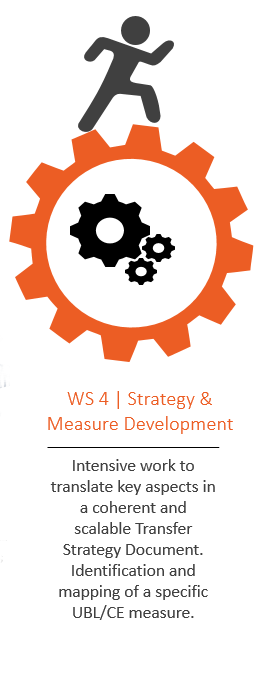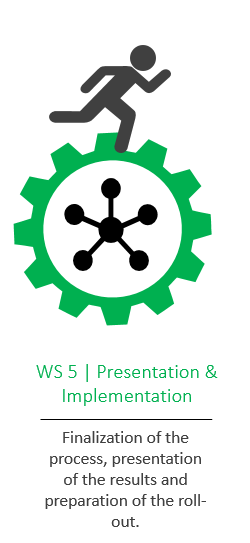The Workshop series was an intensive endeavor that explored themes, experiences and competences from various different partners. Our core understanding and motto during that time can best be described with the following quote!
Do the best you can until you know better. Then when you know better, do better.
Maya Angelou
The Transfer Workshop Series!
The University Business Linkage pillar, generally working on ideas and activities that promote and develop endeavors around UBL (University Business Linkages) and CE (Career Enhancement) for its partners, accomplished one of its major directives over the last year 2021. Through bilateral collaboration each African partner together with a team from Leipzig University mapped and analyzed the transfer ecosystem of each partners higher education institution, which resulted in the development of various strategy documents, intensive in house promotion of the respective topics and the initiation of a minimum of one concrete measure per partner.
The process was accomplished through a comprehensive workshop series, that followed a strict road map with the direct goal to get a clear understanding of the situation on site and the derivation of tailor made scalable activities.
If you are interested in more – get an insight on the process and the developed output down below!
Select a step on the Road Map for some Details Impressions Outputs
The UBL & CE Pillar aims to promote employability of graduates across the fields in Africa. We are developing and evolving activities in the field of UBL & CE to foster employability through collaboration and transfer, resulting in a strong and growing global south based network!
To utilize UBL & CE opportunities we need a coherent and forward thinking transfer strategy! This workshop series sees itself as an activity to support and improve a bottom-up transfer process.
The possibilities to successfully implement best practices are often difficult or even impossible due to the specific circumstances of the respective environment. A lot of potential is lost and there is a risk of supporting a flawed system instead of improving it. Therefore, it is important to start with something tangible, develop it according to the specifics of the environment and then scale it up.
Easy-to-apply best practices are particularly useful in the area of methods and approaches. How do I start a process, what do I need to think about and how could I apply it? First and foremost, it is about starting a conversation and strengthening and spreading a certain topic. It is important to understand what the current situation is and who the stakeholders are. Leipzig University has put its successful internal processes for strengthening transfer at universities into the workshops.
The workshop series has both soft and hard targets. The concrete objectives of the workshops are to develop strategy documents for each core partner involved, which will help them to further develop the theme. A second core objective was to develop concrete actions in the area of UBL or CE. Furthermore, we wanted to support different processes, projects but also people who are active in this field. It was about being an advocate for our subjects and contributing towards the improvement of graduate employability.
Introduction to our Workshop Series
Kick-Off
Six meetings in total and with the goal to introduce best practices developed over many years and implemented with success at the Leipzig University. The tone for the whole workshop series was set here with one major outcome in initiating the data collection phase which could take a couple of weeks up to a couple of months, depending on each partner, the size of their institution and of course the developing pandemic.
Communication is the key! A lot of convincing and awareness-raising needs to be done. The workshop series plays an important role in this. It analyses the status quo, brings together stakeholders and addresses decision-makers to discuss the key issues. The concrete results subsequently allow for the topics to be communicated to the outside world in order to engage external actors. Specifically the exchange with the business sector is essential to be successful and to initiate sustainable processes.
The scaling of activities is an important issue in the successful implementation of any plan. A topic that also depends on the conviction of other actors requires concrete examples that are easily manageable and can be implemented in other areas or on a larger scale if successful. At certain times, it is necessary to proceed step by step in order to build the foundations and to initiate a shift in strategy.
We wanted to develop activities that allow for a quick implementation and frequent opportunities to engage with more stakeholders to scale up.
Gathering of Information
Determine the status quo
This workshop introduced the first discussion about the gathered data. Depending on the circumstances at each institution, the respective partner had weeks or even months to gather as much information from every other active and interested stakeholder/ department. With everything adjusted, clustered and ranked, the next step was to determine relevant topics, stakeholders, experiences and even blind spots. We introduced online tools to keep the workshop as engaged as possible while at the same time edited the collected data to initiate the next workshop.
SWOT is a very common method which allows for the analysis of ones Strengths, Weaknesses, Opportunities and Threats. We chose this method to help with the evaluation of the collected data. Since our goal is to provide support for strategic planning as well as to develop concrete activities, this method of analysis is well suited. SWOT helps to understand the bigger picture and allows to identify areas where actions can and should be taken. With the help of SWOT, we have not only worked out strategic fields of action and recommendations, but at the same time used this as a starting point to identify concrete activities and subsequently initiate them.
We have adapted classic canvases for business and idea development and used them as a basis for developing concrete measures. These canvases were intended to help understand the activities in their entirety and scope. They initiated a more in-depth development process that took the newly produced canvas as the basis for a more detailed and advanced concept.
The depth of the self-assessment results from the many possibilities to address the topic of transfer to HEIs. These range from concrete activities to strategic developments to communication and collaboration with internal and external actors. While an overall view of the situation is extremely important if one wants to push the issue further, it is appropriate to focus on core areas again and again in order to launch concrete activities and achieve results. Going through this process while integrating key stakeholders and decision makers is quite challenging but allows for a sustainable growth.
Analyze and Interpret
Self-assessment
With the third workshop, we engaged in the most important part of the whole series. With all the collected and afterwards structured data, our participants had the tools to assess themselves and identify their advantages and challenges at their institution. To accommodate again to the uniqueness of each partner institution, we often separated this workshop into more sessions, which gave them the opportunity to run certain questions and evaluations by other members that hold sway or contribute to the matters at hand. Following the methodological guidelines of a SWOT analysis, the process profits the most from extensive, precise and diverse information.
The development of strategy documents was a core task of the UBL & CE Pillar. The aim was to develop a document that supports the processes for the successful design of transfer at universities. It was of great importance to understand and take into account the unique local conditions. These strategy documents could be related either to the university as a whole or to individual departments that are active as central actors in this topic area. We envisioned a document that addresses the issue of transfer in general, but also develops the areas of University Business Linkages and Career Enhancement in particular. The task of these documents is now to help communicate and implement activities both internally and externally.
Large-scale strategies and processes are important to prepare for future responsibilities and challenges in a sustainable form. However, such processes are very extensive, resource-intensive and often cannot be launched without comprehensive support. The development of concrete and manageable activities is much easier to ensure. If you make certain that these are subsequently scalable and help to support the overall process, you have a tool at hand that allows you to promote the issue further. At the same time, concrete measures produce direct results and demonstrate to internal but especially external partners what you can offer.
Apply and Develop
Mapping the strategies
The fourth workshop of the series took the outcome of the SWOT analysis and the results of all the former meetings and discussion to derive strategies from it. With newly formulated fields of actions at hand, the workshop again was often split into two sessions, followed by a quick collection of activities, which can be employed to further the overall agenda. With the decisions made and the information structured and ready, the development of the strategy document & supporting activities could start.
The status quo after our workshop series is a solid base that allowed us to start the roll-out and give the universities of the regional networks insights into our work.
With a set of activities, competences and thematic areas at our disposal through which we could share our acquired knowledge with other partner universities according to their interests and capacities, we want to support ongoing efforts in solving those challenges .
The Roll-out phase will be initiated in 2022 and will continue until the end of the project. The goal of this phase is to initiate various measures at all involved universities to promote Career Enhancement and UBL activities. Those can range from one-day workshops, to iterative training’s, to infrastructural projects at the universities.
Our core partners will initiate the first wave of measures/ activities in 2022 to prepare for the dissemination and scaling of the processes in the upcoming years!
The next steps after this workshop series are to translate the results into various promotion material and to integrate those information in the processes at each university.
As a second step we establish the contact with the affiliate partners in the respective countries and transfer the major results and processes to them.
After the integration of those affiliated partner universities we will expand our efforts for the Roll-out phase and push for more activities all through the African partner countries!
from theory to pratice
Presentation of the results
Our last workshop was conducted as a cumulated meeting of all UBL pillar coordinators and board members. It took place during our physical meeting week in Leipzig in the beginning of 2022. Partners presented their findings, documents and next steps in Leipzig, Germany. Concepts of activities developed under the virtual scholarships have been included in the set of activities of each transfer strategy document.
Contact

Marcel Liebich
Coordinator for ACCESS (UBL)
Leipzig University
Management and Economics of Innovation
marcel.liebich@uni-leipzig.de
+49 341 97 33654

Bismark Yeboah
Coordinator for ACCESS (UBL | AGEA)
Leipzig University
SEPT
bayeboah@uni-leipzig.de
+49 341 97 39765
